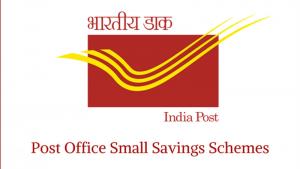Factors to Consider Before Purchasing Best Medical Insurance Plans in India
There are few factors that you should consider closely to make the right decision.
- Caps and sub-limits: Caps and sub-limits are the thresholds set on various policy-covered expenses. If a health policy has impositions of co-payments, sub-limits, and other caps, this would mean that there will be a policy-stated coverage offered for various expenses. At times, co-pay clause and caps help in reducing the premium of the plan. These, however, would alter the benefits in the long run. To make the most of your health insurance policy, you must understand these factors before you pay for a plan.
- Claim settlement record: This is an important criterion to assess the credentials of an insurer. You should always go with a company with a good claim settlement record. Thus, you can ensure that your claims would not be wrongly withheld. Always ask for the company’s claim settlement ratio before purchasing their health plans and save yourself from unnecessary harassment in future.
- Scope of cover: Don’t buy a plan by just comparing health insurance premium. Less cost does not necessarily mean a good plan. On the contrary, such a plan might not consider your needs properly. Closely look at what the plan includes. Buying a comprehensive plan is a better option comes to your rescue when you need it the most.
- Renewability: It is important to see how many years the plan proposes to protect you. It makes no sense if you are covered by a plan during your youth only to be left without a safeguard when you need it the most - during your old age. Mediclaim policies are usually annual contracts. Once the policy term ends, in the order to continue the insurance coverage, the insured has to pay a premium. This recurring process is called renewal. The policy should be renewed continuously, because if there is a break, then, the person will lose the benefits of insurance.
- Cashless Hospital Network: Check if a hospital around you is included by the company you are considering to buy the plan from. You and your family won’t be required to run around collecting documents and filling reimbursements. The provider or its Third Party Administrator should have a tie-up with a range of hospitals. The insured can get admitted in any of these nursing homes without paying anything from the pocket. However, cashless mediclaim resolution is subject to limits and sub-limits, which, in turn, are subject to the sum assured of the policy.
- Premium Loading: Premium Loading refers to the increase in standard premium applicable when the insurer perceives a person to be more at risk (of claiming the insurance) in comparison to others. It is strongly recommended that you check the terms and conditions pertaining to premium loading. This will save you from paying an incremented premium after making a claim. This aspect, though ignored in the beginning, usually becomes a bone of discontentment later. The best practice would be to verify the cost fluctuation data of the plan for the previous 5 years at the very least.
- Internal Team: Check for plans from firms who have a dedicated internal team for handling Mediclaim. This expedites the Mediclaim resolution process. Most of the players use a third-party administrator to process the claims and do the paperwork. Even though most of these Administrators provide great services, the fact that they are a third-party slows down the process. There are certain rules and regulations to be followed when an administrator processes a claim before it is handed over to the insurance company. These affect the turnaround time.
- Floater (family) Size: Everyone has a different family size, so you should always look for the family size allowed under the plan before purchasing it. If you are a person in your late 20s and your parents are in their 40s, 50s or 60s, then purchasing insurance only for yourself does make sense. Alternatively, if you are married with or without kids and have dependent parents, parents-in-law, siblings etc., then a family health plan is best for you. Checking the cost, family size covered, critical illnesses or other benefit will ensure that you are able to purchase the plan you need.
- Health Insurance Portability: It is wise to choose a health insurance company that offers health insurance portability. Earlier, policyholders had to stick to a policy just to retain the advantage. Now, you are allowed to switch from one insurance company to another without losing the waiting period advantages earned in your current policy. Moreover, with insurance landscape changing so regularly, insurance companies regularly come up with better policies and it may make sense to opt for health insurance policy portability. Although health insurance portability is free, some companies may charge you a certain fee if you are to port out of their plans to those of some other players. Therefore, make sure you do not pay any charges for medical insurance portability. Health insurance portability is a good thing to check when you are finding the best health policy or mediclaim.
- Restore Benefit: With 'restore benefit' facility in your health care plan, you can restore your basic sum assured in case you have already spent the same or the multiplier advantage during your policy tenure. Mostly, the benefit cannot be obtained on the same ailment if you have exhausted the existing sum limit.
Restoration assistance proves to be helpful for a family floater health plan, where if the entire sum assured is used in the treatment of only a single family member, the other members are not left uncovered. In such a case, the other family members can avail policy coverage for the illness other than the one for which the expenses have already been compensated by the insurer.
Well, while finalising your health insurance plan, you should consider other influencing factors such as waiting period, sub-limit, claim settlement procedures etc. You can replace restore benefit with a super top-up plan at an affordable price. Moreover, top-up plans are more comprehensive since they comes with less or no restrictions.
- Top up Plans: With the rise of medical inflation, having a large medical cover is prudent. But, not all can afford it due to the high premium. This is where a top-up plan comes into the picture. A top up plan reduces the deductibles cost i.e. the portion of claim you pay willingly for the damages before the insurer compensates the rest or up to the sum assured. With a top up policy, you don’t pay until a hospital breaks its defined limit. A top up plan is considered far cheaper than a standalone medical policy.
For instance, if the medical bill is Rs. 6 lakhs with a deductible of Rs. 2 lakhs, you are required to pay only the latter amount and the remaining 4 lakhs will be paid by the insurer. But, you can utilise your health policy to pay the liable amount. Again, the blending of a top-up plan with a medical cover is helpful as the premium you pay is much more affordable than the single plan. For example, if you pay 6,500 as a premium for Rs. 5 lakh regular cover, a top up coverage of Rs. 15 lakh will entail to an additional premium of 5,000, which is anyhow cheaper than a separate policy of identical cover.
- Waiting Period: As per the insurance norms, every insured must serve a defined waiting period for any pre-existing illness. It is usually a 30-day period from the day your health insurance policy is initiated. If any claim falls during the waiting period, the insurer has the right to reject the claim for any hospitalisation, except in the case of an emergency. A hospitalisation that arises out of an accident can be registered as a claim and the insurer will compensate the hospitalisation cost. However, the insured is not required to serve the waiting period for subsequent years.








